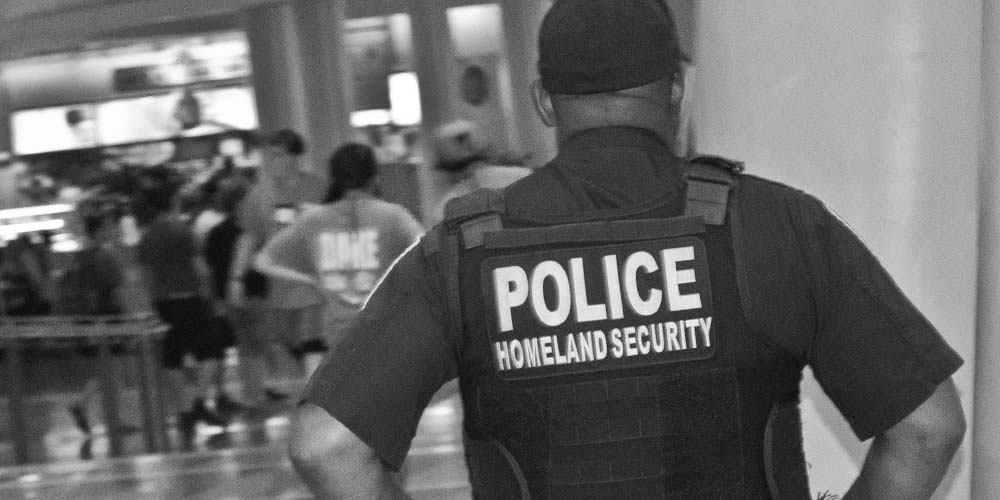Train to respond, lead and protect in Homeland Security
If you’re interested in fast-paced environments, critical decision-making and the mission of keeping communities safe, our Homeland Security program is for you! Our associate degree offers the perfect pathway to a fulfilling career.
Through immersive, hands-on training, you’ll develop critical skills for crisis situations, and learn how to respond to terrorism threats, cyberattacks, natural disasters and other dangers.
Whether you’re aiming for a career with the Department of Homeland Security or exploring roles in the private sector, this program empowers you to shape a safer future.
For a look at our Homeland Security courses, visit our catalog.

Build skills for real-world security challenges
In our program, you’ll learn from homeland security professionals who’ve served in various agencies across the criminal justice and security spectrum.
Guided by their own experience, they’ll teach you about:
- Risk assessment
- Intelligence analysis
- Critical infrastructure protection
- Emergency planning
- Terrorism and threat analysis
- Legal and ethical issues
Best of all, you’ll have the opportunity to receive field experience with these experts through our Criminal Justice Practicum.
Ready to start your career in national security?
Professor Samantha Bowlin, program advisor, is ready to hear from you! Contact her at 586.286.2159.
Careers in Homeland Security and public safety
Take a look below at the positions available and the salaries you can expect to earn with an associate degree from Macomb, as well as with a bachelor’s degree from a four-year college or university if you decide to continue your education.
And our Career Services is here to help you find a job, as well as polish your resume and interview skills so you make a good impression when you meet with hiring employers.
Additional Information
The goal of the Health and Public Services Division is to prepare every student to think critically and practice competently and compassionately in rapidly changing environments. All efforts are designed to build knowledge, enhance practical skills, and promote patient and the population’s safety. Furthermore, the program is designed to foster professional integrity and ultimately improve the health outcomes and protection of patients, families, and communities across the continuum of care and practice. Students must possess certain functional abilities, essential for the delivery of safe, effective clinical care and protection of the public during clinical and internship training activities in the field. Therefore, the faculty has determined that certain technical standards are required for admission to, progression in, and graduation from the Health and Public Services (HPS) programs.
In addition to classroom learning, clinical and internship learning occurs throughout the HPS programs and involves considerations (such as patient and population safety and clinical and internship facility safety) that are not present in classroom accommodations. Applicants or students interested in HPS programs who seek accommodations prior to or immediately after enrolling in the college are highly encouraged to also request an assessment of the types of reasonable accommodations needed for the clinical and or internship components of the program.
An individual must be able to independently, with or without reasonable accommodation, meet the following technical standards of general abilities: (1) observation; (2) communication; (3) motor skills; (4) intellectual, conceptual, and quantitative abilities; (5) essential behavioral and social attributes; and (6) ability to manage stressful situations. Individuals unable to meet these technical standards, with or without reasonable accommodation will not be able to complete the programs and are counseled to pursue alternative careers.
SPECIAL SERVICES STATEMENT: Students may individually discuss the essential functions and technical standards with a college counselor from our Special Services department. In compliance with Section 504 of the Rehabilitation Act of 1973 and the American Disability Act of 1991, academic accommodations may be provided to students who have a documented disability.
For further information, visit Special Services.


